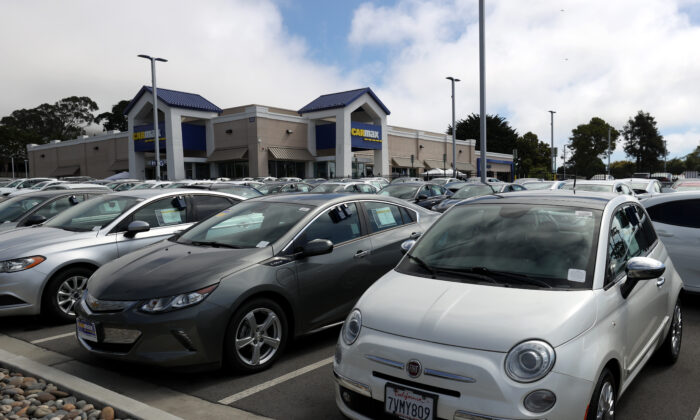Commentary
On Sept. 23, California Gov. Gavin Newsom signed an executive order directing the California Air Resources Board to develop rules that would eliminate the sale of gas-powered cars and trucks in the state by 2035.
The unintended consequences of the order, if it is carried out, are easy to predict.
Rules that would prevent the purchase of gas-powered cars in California, in favor of zero-emissions vehicles, will likely present a roadblock to lower-income people seeking to purchase a vehicle. In addition, the people who can’t afford zero-emission cars will simply venture to a neighboring state to buy less-expensive, gas-powered cars.
In 1988, George H.W. Bush famously said on the campaign trail: “Read my lips. No new taxes.” Less than three years later, he had to reverse that pledge, and signed a budget that included a tax increase. Part of that increase in taxes was a 10 percent additional “luxury tax” on yachts. In response, many people chose not to buy a yacht—maybe in the belief that the tax would be temporary or because the laws of supply and demand work in markets, even for expensive toys, and, as a result, yacht sales plummeted.
However, some people, though, flew to Caribbean countries to make purchases and had their new boats delivered to the United States.
More recently, around the July 4 holiday, during the global pandemic, many Californians saw their neighbors using fireworks that were clearly not “safe and sane.” While these fireworks are illegal in California and pose a very high fire risk, anecdotally, it was the largest year for illegal fireworks many Californians could ever remember.
Many factors were at play, including that families could stay in their own yard and walk out to the street to light their own fireworks—very safe from a social distance perspective—but also do something outside at the same time they knew their neighbors would also be outside, creating an important moment of socialization that was still very rare at the time. What is important for us here, though, is thinking about where our neighbors purchased their illegal fireworks.
It’s likely that many of the pyrotechnics were purchased in Mexico or Nevada or on Indian reservations and then brought back to their neighborhoods.
The argument here is that cars are easier to buy than fireworks or yachts. It isn’t difficult for Californians to head to a nearby state to buy a car and drive it home. Plus, used gas-powered cars, pickup trucks, and SUVs will still be available for purchase in California even after 2035.
Currently, used car prices are substantially higher than they otherwise would have been because auto companies stopped making cars, first because worker safety during the pandemic had to be addressed and then because car companies participated in making pandemic-related medical equipment.
And because, as with higher prices on any good, “the demand function” means fewer people are able to buy a used car right now.
From all these examples, we can make some predictions about what might happen if Newsom’s executive order is carried out and the California Air Resources Board develops rules making it impossible to buy new gasoline-fueled passenger vehicles in California:
- All car prices will go up.
- Poor people will take much longer to get to work because of reliance on public transportation.
- Increased transportation time and increased costs for vehicles will create revived demand for housing in city centers (a reversal of efforts to seek larger homes and avoiding crowded city centers).
- Car sales will increase in Nevada and Oregon.
- Used car prices will rise because people will hold on to their cars longer, rather go through the hassle or cost of buying a new vehicle.
Economists don’t have a crystal ball, and because 2035 is 15 years away, these rules may never be developed.
In any case, history is a great guide, allowing us to draw analogies to previous economic phenomena.
Tim Shaler is a professional investor and economist based in Southern California. He is a regular columnist for The Epoch Times, where he exclusively provides some of his original economic analysis.
Views expressed in this article are the opinions of the author and do not necessarily reflect the views of The Epoch Times.
Focus News: Newsom’s Ban on Gas-Burning Cars Predictably May Have Unintended Consequences
DOJ: More Than 300 Charged With Crimes Committed Near or at Protests Since May
